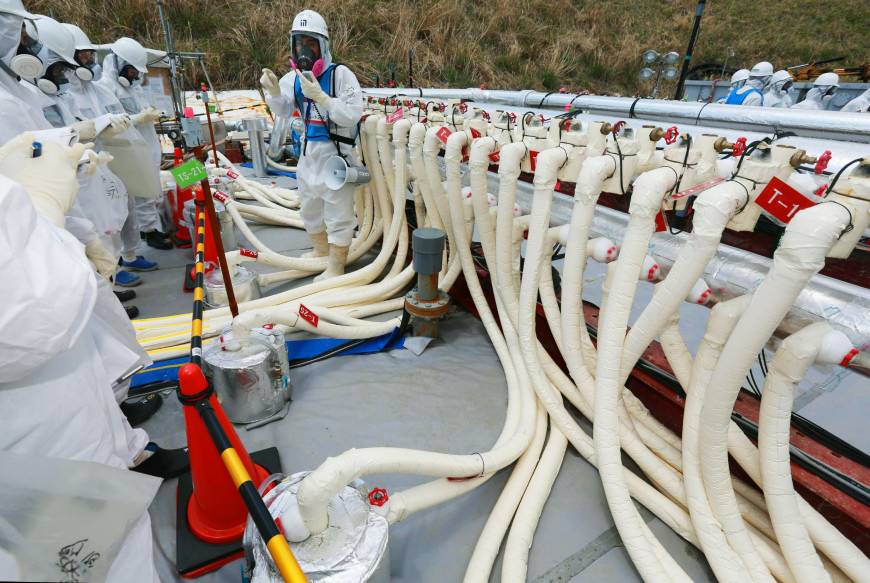Published on Monday, October 21, 2013 by Common Dreams
Environment Ministry announces clean-up delayed until 2017

An aerial photograph of the Fukushima Daiichi nuclear power plant taken on Sunday, October 20, 2013 after heavy rainfall caused radioactive water to overflow storage tanks (bottom). (Photo: File/ Reuters)
According to officials with Tokyo Electric Power Co, or Tepco, water with high levels of radioactive strontium used to cool the damaged reactors overflowed thousands of containment tanks at the plant.
Reuters reports:
[C]ontainment areas surrounding 12 of 23 groups of tanks overflowed, with one of them containing Strontium-90 as highly concentrated as 710 Becquerels per liter – 71 times higher than the level set by the company as safe for release.
Strontium-90 is a by-product of the fission of uranium and plutonium in nuclear reactors as well as nuclear weapons, the U.S. Environmental Protection Agency says on its website.
Having planned for 30 to 40 millimeters of rainfall, the utility was "overwhelmed" when over 100 millimeters had accumulated by late afternoon.
"Our pumps could not keep up with the rainwater," said Tepco spokesman Yoshikazu Nagai.
Tepco told Kyodo News that they "cannot rule out the possibility that contaminated water has reached the Pacific Ocean via drainage conduits near the clusters," and added that they are working to determine that amount of contaminated water and what possible radioactive substances were released.
This latest contamination comes as Japan's environment ministry announced Monday that efforts to clean up the six towns and villages surrounding the Fukushima plant are proving to be "much more complicated than originally thought" and will be delayed until 2017.
"Ministry officials cited several reasons for the delay," BBC reports, "including a lack of space for the waste from the decontamination work."
_____________________


